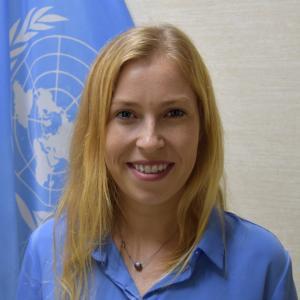On March 21 in 1960, police opened fire and killed 69 people at a peaceful demonstration in Sharpeville, South Africa, against the apartheid "pass laws". Six years later, on 26 October 1966, the United Nations General Assembly proclaimed that 21 March was the International Day for the Elimination of Racial Discrimination.
Promoting a culture of non-violence, resilience and peace through education for mutual understanding and respect is central to UNESCO's work to eliminate all forms of discrimination, including racial discrimination in order to build peace in people's minds. UNESCO in the Caribbean is committed to promoting mutual understanding and intercultural dialogue in a culturally diverse and pluralistic Caribbean sub-region.
As the novel coronavirus began to spread in early 2020, so did the stigma against certain ethnic groups leading to hate speech, violence and discrimination against certain ethnic groups and nationalities. In this light, COVID-19 has unmasked vectors of discrimination that our contemporary world is afflicted with and magnified inequalities. Young people from different ethnic backgrounds have therefore faced and continue to face multiple types of discrimination, which further exacerbates the negative impact of the pandemic on the youth population, for example.
"It is important to examine the impact of the COVID-19 pandemic from an intersectional perspective."-Carla Moore, Adjunct Lecturer, University of the West Indies
In a conversation with UNESCO published in the Jamaica Gleaner, Carla Moore, adjunct lecturer at the Institute for Gender and Development Studies, Mona Unit, at The University of the West Indies, explained why it is important to address intersectionality in the context of exclusion and discrimination in Jamaica, calling for gender equality and meaningful youth participation. Moore underscored that not all the population has been impacted in the same way due to COVID-19. Understanding this phenomenon in the Jamaican context, she argues, requires a different set of lenses such as gender, ethnic origin or class affiliation.
Read the full Interview in the UN 75 Magazine here.
Youth standing up against racism
Against this backdrop, the Social and Human Sciences Sector of the UNESCO Cluster Office for the Caribbean joins the United Nations Human Rights Office of the High Commissioner OCHCR in the fight against racial prejudice under the slogan “Youth standing up against racism”.
As part of this global call to youth, UNESCO in the Caribbean is declaring the week of 21-26 March as #FightRacism Action Week to combat racism and all forms of discrimination, promote inclusion, equality and diversity among Caribbean youth. UNESCO is calling on youth to join this week of action as part of the #iRespectU campaign, Equality, Diversity and Inclusion. During this action week UNESCO dedicates its social media channels and the campaign to young people to express their views and speak out against all forms of discrimination, prejudice and exclusion .
Folllow @unesco_caribbean to get inspired by the positive actions of young changemakers in the English and Dutch- speaking Caribbean that will be highlighted via an Instagram takeover. By commemorating this International Day, UNESCO reiterates its commitment to enhancing peacebuilding, promoting mutual understanding, and fostering inclusion in Caribbean SIDS, especially with the context of the COVID-19 crisis.
Download the Social Media templates and join the UNESCO #FightRacism Action Week! Tag your post with #FightRacism and help shape the conversation on Equality, Diversity and Inclusion in Social Media!



